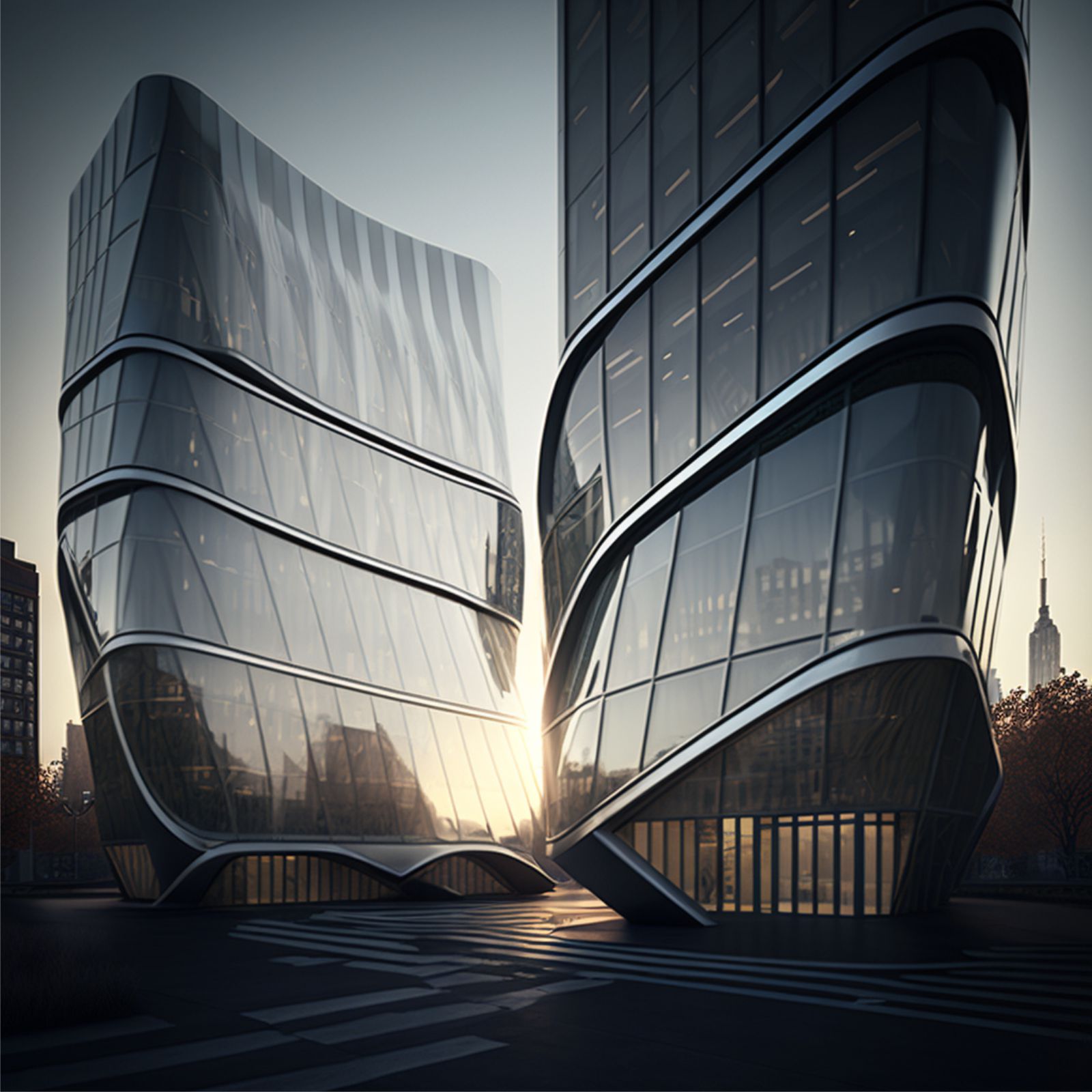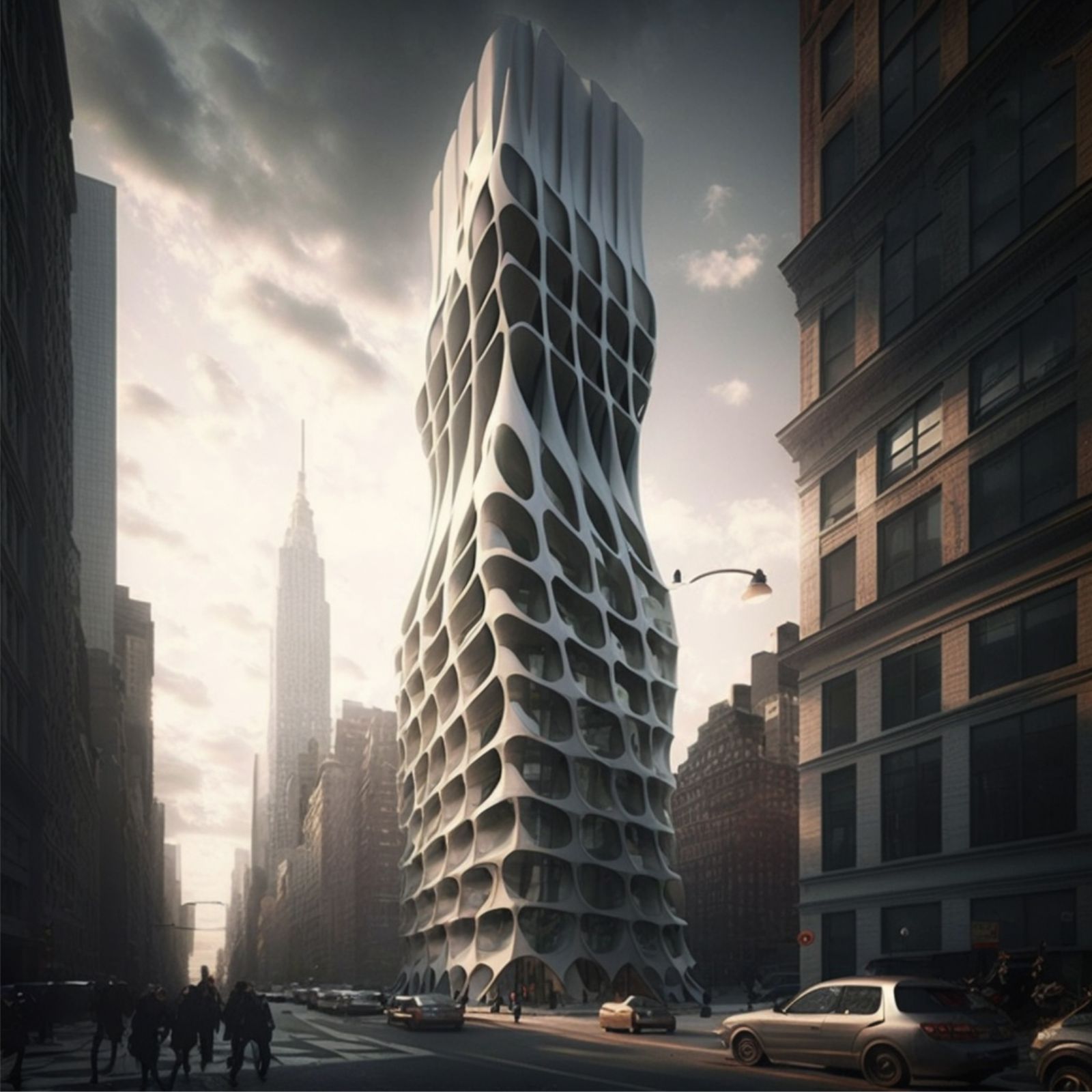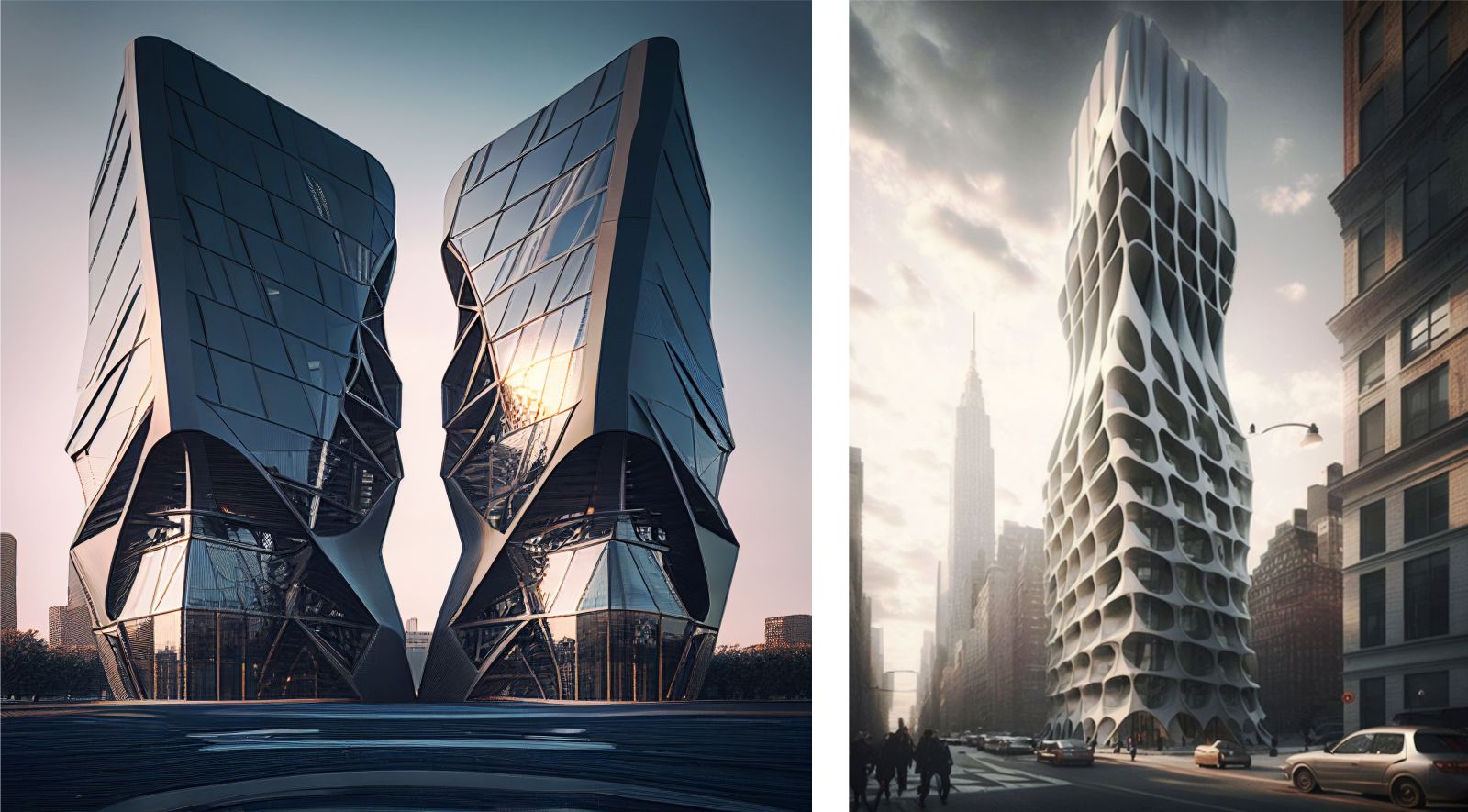This is a series of concept images generated by AI software to investigate latent potentials in tower design and the dichotomy of dual skyscraper configurations in the Manhattan skyline.
As New York continues to revitalize itself with new structures and residential towers, these images are experiments in pushing aesthetic boundaries.

The architectural concepts range from continuous surface membranes to poly-performative structures in steel and glass. The tower proposals are to examine strategies in connecting towers to infrastructure and make bridges for activity.
By having dual towers that connect and shift, it creates a visual language in tectonics as part of a play in architectural expression. This kind of system of dual interplay of mass and structure is the main aim to investigate with the aid of AI.

It is possible to add an additional layer of complexity with performative structures within a building, to react to an adjacent partner in form. The architecture varies from each rendering, but the iconic nature of a dual tower strategy remains.
Some towers focus on mass and connectivity within the context of New York, while others are standalone formal icons. Some dual tower concepts investigate variations in structural expression and the torquing of elements within tectonic formations.

Overall, the adoption of a poly-performative structural system in skyscraper design can result in visually stunning, structurally sound, and environmentally sustainable buildings that provide a visual icon within the urban context.
Regarding visual impact, Twin towers have a symmetrical appeal and serve as a landmark and visual anchor for the surrounding urban context. The benefit of a bifurcating tower system is the floor plate is ideal for creating large office spaces free from any structural interruptions.

This allows for flexibility in the design and efficient use of the available space. Tower bridges connecting to the podium create sheltered public spaces and a pedestrian-friendly environment, which enhances the urban experience for those walking around the area.
These systems provide a high degree of design flexibility, enabling architects to create unique and aesthetically striking designs that stand out from traditional skyscrapers. Source and images Courtesy of MA2.




